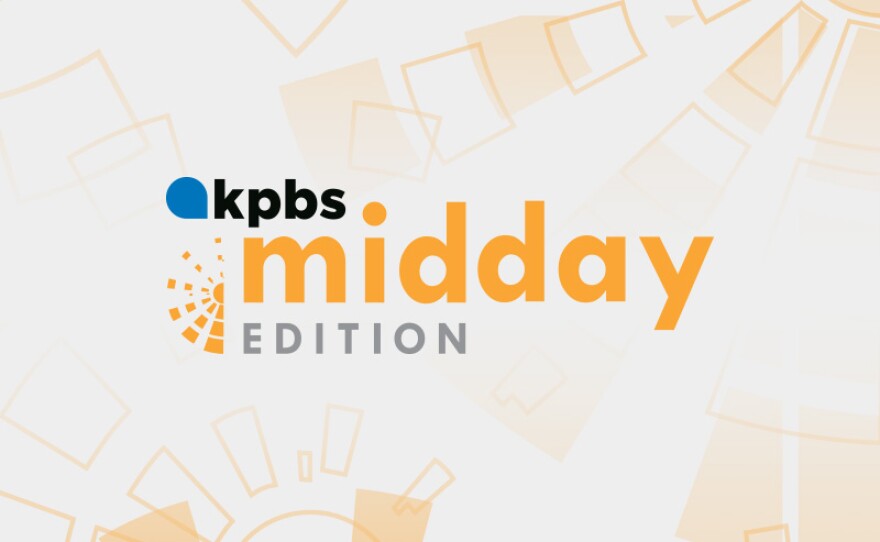Meth Is Easy To Get In San Diego, But Addiction Is Hard To Treat
Speaker 1: 00:00 The opioid crisis is making national headlines. But meth is a major problem in San Diego County. New reports show meth use and deaths reached record highs last year. So why is it so difficult to treat the problem? KPBS reporter Taryn mento pose that question to assistant medical director and psychiatrist at family health centers of San Diego. Dr Joe [inaudible], Speaker 2: 00:24 from a clinician's point of view, why are we having trouble addressing this problem and why is it growing over such a period of time? Speaker 3: 00:31 So one is easy access. Okay, this is readily available out in the street. The other is, it's very cheap to get. So it's not a barrier as far as price. Um, the other reason we're having a hard time getting a handle of this is because we don't have, uh, a lot of funding to treat this disorder. So for example, some of the treatments like contingency management that's very effective for treating methamphetamine requires funds in order to provide the behavioral, um, positive reinforcement for having a abstinence. No one's willing to pay for that. And it's a very difficult to secure funding for it. So implementing these strategies that we know are evidence based on when the real world is difficult. Speaker 2: 01:12 What is the standard treatment for meth addiction? Speaker 3: 01:15 The matrix model is one treatment modality that we have that's evidence based for methamphetamine use. And what that basically means is it's an intensive type of therapy that we do over several days throughout the week. A patient typically shows up five days out of the week for the majority of the day. They have group therapy, individual therapy, motivational interviewing, we do a urine toxicology is contingency management as part of that. And 12 step programs are a part of that as well. Um, in addition to that, we do use some medications. We don't have any FDA approved medications like we do for other substance use disorders, namely opioid sense of box on a methadone, which a lot of people are aware of. But there is some evidence for some medications for which we use that show. A benefit in reducing Matthews. Speaker 2: 01:57 Why can't we use medications that are approved to treat opioid addiction to treat meth addiction? Speaker 3: 02:05 That's a good question. The reason is because, um, meth hits different parts of the brain. Uh, opioids hit what we call them [inaudible] receptors in the brain. It's one specific receptor and we can target that with the medication that we're currently using, which is Suboxone and methadone. In addition to that, we can use naltrexone, but we don't have that specific target for methamphetamines. They hit various parts of the brain. So there's not one specific medication that'll work. Speaker 2: 02:31 So when we're talking about this intensive therapy treatment for meth addiction, how successful is it Speaker 3: 02:37 if patients engage in the structured program and they complete the program? We have very good results showing that they're able to sustain sobriety for an extended period of time thereafter. So it is very, very beneficial for meth addiction. Speaker 2: 02:53 Now going back, what is contingency management? Speaker 3: 02:56 Really what it involves is a patient in to submit in urine toxicology at least two times per week. Each time they submitted urine toxicology. If it is negative for methamphetamines, which is the drug we're testing for, then we provide them a positive reinforcement, a prize, so to speak. Right? And every time they submitted a subsequent negative urine toxicology, they get more draws toward a prize. And we're basically reinforcing the behavior. What we're doing here at family health centers is we're in the midst of starting a contingency management program Speaker 2: 03:29 for people who may be tuning in and say they have someone that they know that is addicted to math or is a meth user, what are they supposed to do to support that person? Um, either to get them into treatment or throughout the treat. Throughout treatment. Speaker 3: 03:44 I realize that this is a disease that they do not have control over. It is not a moral failing. This is truly a disease that we know very well, um, works, uh, in a certain way in your brain. We have evidence for this. So there is treatment available. Just support your loved one. Know that there's help, help them seek the help that they need, uh, such as coming to a place like family health centers or wherever they offer addiction treatment services and for the family themselves. This is a big trauma for them as well. So please seek services for yourself as well to support you. Speaker 2: 04:18 Thank you very much for your time. Sure. Thank you. That's KPBS health reporter Taryn Mentos. Speaking with dr Joe [inaudible] of family health centers of San Diego.


